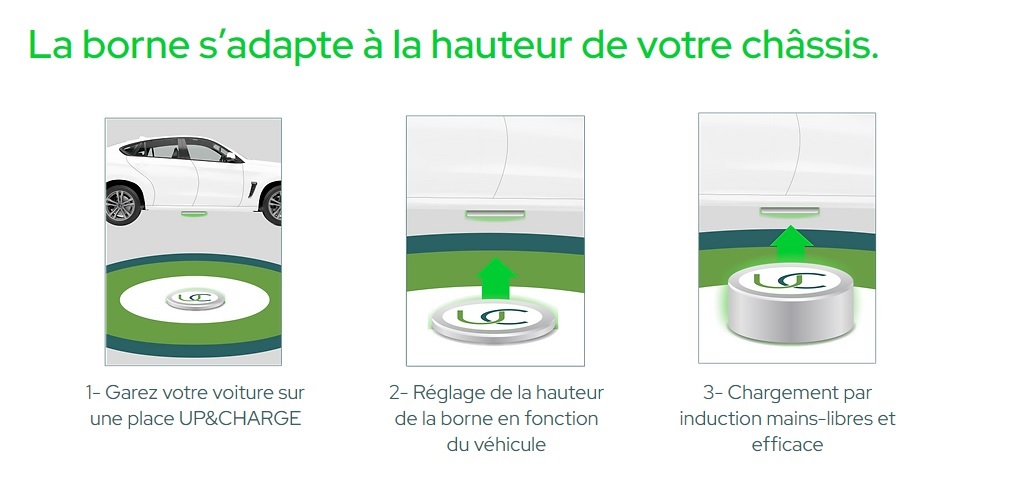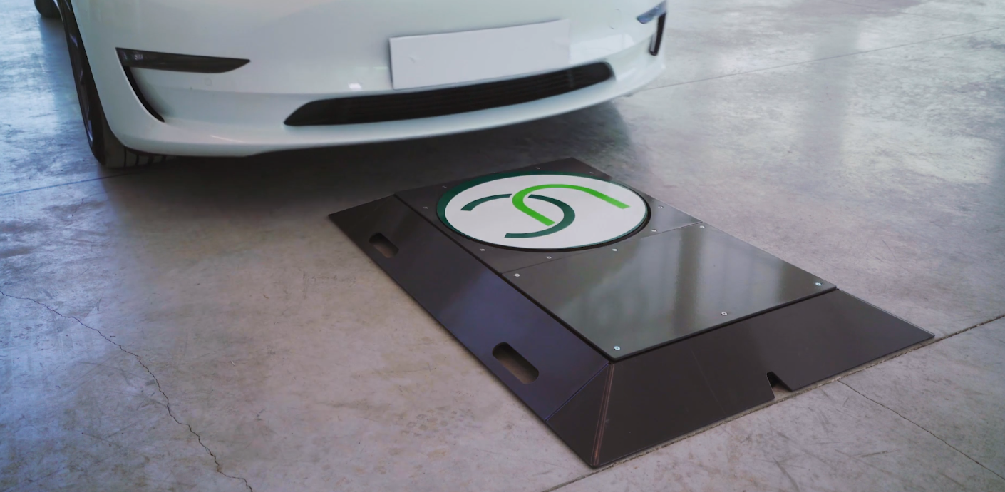In February 2024, 40,002 electrified vehicles were registered in France, a 25.7 per cent increase compared to 2023, reaching a market share of 23.1 per cent.
Indeed, more and more companies are starting to invest in the sector.
Such is the case of Up&Charge, a young French company that, although it is in the pilot stage of its new charging solution, is already attracting the attention of eMobility stakeholders.
Founded in 2021, the firm offers a wireless charger, which means a universal and interoperable solution for all vehicles, whether cars, trucks, utility vehicles, buses, drones, among others.

“We expect to have around 200 pre-ordered stations by the end of the year,” states Marin Champenois, Chief Executive Officer (CEO) of the company, in dialogue with Mobility Portal Europe.
In addition to optimizing the hardware and software of the system, the company will seek to start orders as part of the commercialization process for 2025.
Indeed, it is estimated that the market launch will be next year, once the pilot tests that will be carried out in the coming months are completed.
“This year we want to carry out pilots, focusing on corporate fleets. We also intend to undertake tests with the largest companies in France,” says the representative.
It is worth mentioning that Up&Charge’s method consists of two components.
One of them is an induction kit the size of a vinyl that is placed under the vehicle.
The second consists of the charging terminal placed on the ground.

The operation of the system consists of the user stopping the car on top of the equipment, and then adjusting the height of the bollard for the process to be successful.
Indeed, the charging is carried out without the need to use hands or cables.
It is the only solution available for users with limited mobility, as it is possible to face the process without the driver getting out of the vehicle.
It is worth noting that in the first sales, the installation of the kit will be the responsibility of the companies that acquire the system.
However, as the system becomes more popular, it is expected that the installation will be done at the original automotive factories of each car.
When asked about the benefits of the system, Champenois indicates: “We are four times less expensive than the rest, as we do not have wall boxes and everything is installed in a ground charging station.”
Furthermore, unlike other systems, this one involves less energy loss.
And he continues: “We have an energy transfer of 95 percent, while regular ones have 75 to 85 percent.”
The idea for this invention came from Guy Flaquieré, co-founder and CTO.
A few years ago, when buying an electric car, he encountered a series of obstacles when charging his vehicle.
Indeed, Flaquieré resolved that a wireless option would be better and easier to use.
Currently, the company has a capital of 88,000 euros, and the solution is already patented in 202 countries.
Up&Charge on fast charging: “Using more than 50 kW damages the battery”
Currently, France has ten per cent of fast or ultra-fast chargers, a percentage that is well below the global average of 22 per cent.
However, this fact is not necessarily negative for Champenois.
“Charging the car daily with a power greater than 50 kilowatts damages the battery,” he says.
And he continues: “You can do it when you are traveling and you have to cover long distances, but to go from your home to work, it is better to use less power.”
On the other hand, despite France having few fast stations, the progress the country has made in the eMobility sector is undeniable.
“The advancement of electromobility in the country was mainly due to government incentives, which really motivate companies to switch to the ecological car sector,” acknowledges the CEO.
“Without it, we would not have achieved what we currently have,” he adds.







